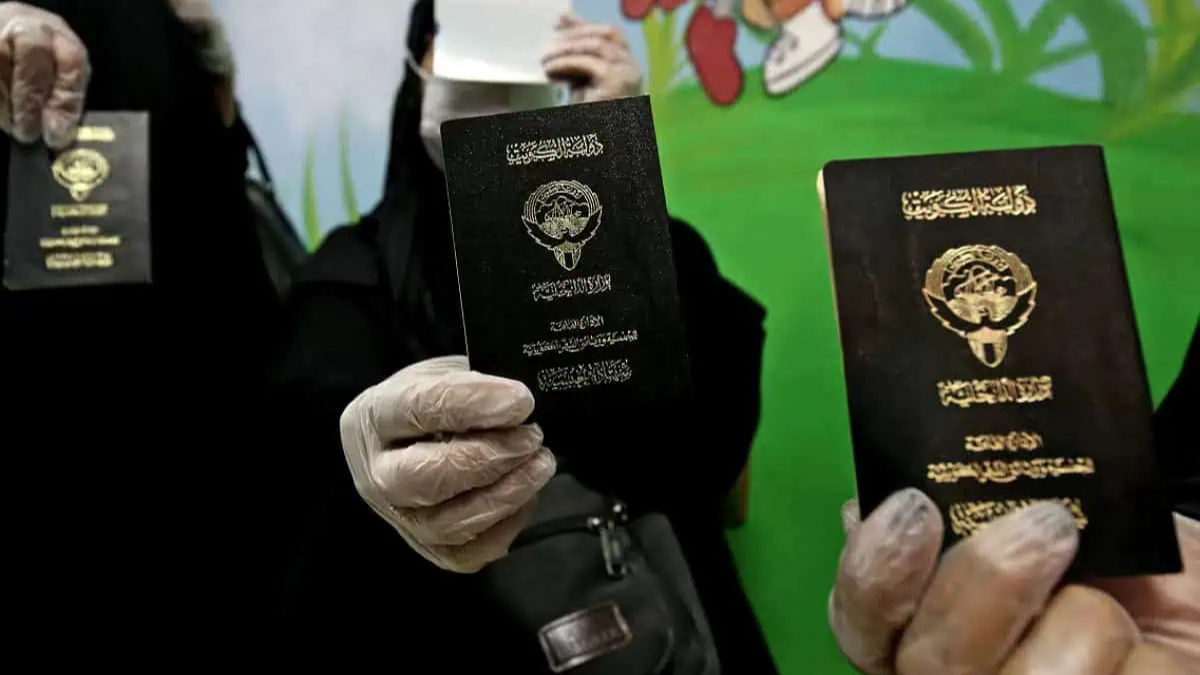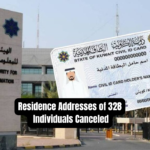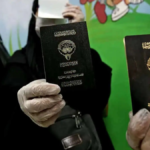Kuwait Revokes 930 Citizenship Cases. In a significant development aimed at safeguarding national interests and ensuring legal compliance, Kuwait’s Supreme Committee for Investigating Kuwaiti Citizenship recently convened to review and address citizenship cases under scrutiny.
This meeting, presided over by the Acting Prime Minister, Minister of Defense, and Minister of Interior Sheikh Fahad Yousef Saud Al-Sabah, concluded with the decision to revoke citizenship from 930 individuals.
This decision underscores Kuwait’s commitment to maintaining the integrity of its citizenship records and upholding national security standards. Below, we delve into the details of this decision and explore the implications for citizenship policies in Kuwait.
Key Points from the Supreme Committee for Investigating Kuwaiti Citizenship
1. The Supreme Committee Role in Citizenship Verification
The Supreme Committee for Investigating Kuwaiti Citizenship, chaired by prominent national leaders, plays a critical role in assessing, verifying, and ensuring the legality of Kuwaiti citizenship claims. Given the increasing complexity of citizenship regulations globally, this committee’s work reflects Kuwait’s broader objective to align its citizenship criteria with stringent national standards.
| Function | Description |
|---|---|
| Investigation | Review of citizenship records and cases under potential false claims or breaches of law. |
| Verification | Verification of legitimate claims to ensure only rightful Kuwaiti citizens are registered. |
| Decision-Making | Approval or revocation of citizenship based on investigative findings. |
2. Kuwait’s Citizenship Revocation Process
Revoking citizenship is a complex legal and administrative process overseen by Kuwait’s Ministry of Interior. When individuals are found to have obtained citizenship through fraudulent means or are engaged in activities contrary to national interests, their status is subject to thorough review.
The Supreme Committee carefully examines each case before a final decision is made, following which cases are presented to the Cabinet for approval.
3. Grounds for Citizenship Revocation in Kuwait
The revocation process is conducted under stringent criteria, primarily focusing on cases where individuals:
- Have acquired citizenship through falsified information.
- Are involved in activities that threaten national security.
- Fail to meet the residency or loyalty requirements set forth by Kuwait’s legal framework.
Each case undergoes multiple rounds of verification to ensure that the decision is supported by substantial evidence and legal backing.
Kuwait National Security Strategy and Citizenship Policies
The Ministry of Interior’s role in overseeing citizenship decisions reflects Kuwait’s proactive approach to safeguarding national security. This strategy involves close coordination among government branches to monitor and control access to citizenship, thereby preserving Kuwait’s social and cultural identity.
The Ministry of Interior Vision
The Ministry’s initiatives emphasize:
- Transparency in Citizenship Cases: To ensure all cases are managed with fairness and within the boundaries of law.
- National Integrity: To reinforce trust in Kuwait’s national policies by ensuring citizenship is reserved only for those who align with the country’s values and legal frameworks.
These steps contribute to the overarching goal of maintaining a stable and secure environment for Kuwaiti citizens and residents alike.
Impact of Citizenship Revocation on Individuals and the Community
The decision to revoke citizenship not only affects individuals but also has broader implications for families, employment, and community stability. Once citizenship is revoked, individuals are often subject to legal proceedings that determine their future in Kuwait, including residency options and potential deportation.
Following Citizenship Revocation in Kuwait
Upon revocation, individuals undergo a series of legal and administrative steps:
- Notification: The Ministry of Interior formally notifies individuals about the revocation decision.
- Review and Appeal: Those affected may have the opportunity to appeal or seek legal recourse.
- Exit Protocol: In cases where individuals must leave the country, the Ministry coordinates with relevant authorities to ensure compliance with Kuwaiti law.
Future Implications for Kuwait Citizenship Policy
Kuwait’s recent citizenship revocations mark a shift toward stricter enforcement of its citizenship regulations. This approach may indicate the government’s intention to fortify citizenship requirements further, especially as the country aligns with regional and international standards for national security.
1. Strengthening Border and Residency Controls
Efforts to control residency and citizenship status reflect a broader regional trend aimed at minimizing security risks through tighter immigration and citizenship laws.
2. Citizenship Policies in the Gulf Region
Kuwait’s policy measures are similar to those in neighboring countries where governments are actively managing citizenship to maintain national integrity. As a result, regional policies may see an increase in cooperative agreements aimed at data-sharing and enhanced border security.
3. Projected Legislative Amendments in Kuwaiti Citizenship Law
Anticipated changes in Kuwaiti citizenship law may introduce additional clauses on eligibility, loyalty requirements, and residency criteria, all designed to ensure that only eligible and loyal individuals hold Kuwaiti citizenship.
FAQs About Kuwait Citizenship Revocation
Q1: What are the main reasons for revoking citizenship in Kuwait?
Ans:- The primary reasons include obtaining citizenship through false information, engaging in activities that threaten national security, and failing to meet residency or loyalty requirements.
Q2: Can individuals appeal a citizenship revocation decision?
Ans:- Yes, individuals affected by citizenship revocation have the right to seek legal recourse and may file appeals as per Kuwaiti law.
Q3: How does Kuwait’s citizenship revocation policy compare with other Gulf countries?
Ans:- Kuwait’s approach aligns with other Gulf nations that are adopting strict measures to safeguard national security by regulating citizenship access.
Conclusion
The revocation of 930 citizenships by Kuwait’s Supreme Committee underscores the country’s dedication to maintaining the integrity and security of its citizenship registry. With national leaders prioritizing transparency and adherence to legal standards, this decision sends a strong message about Kuwait’s commitment to upholding the values and security of the nation.




